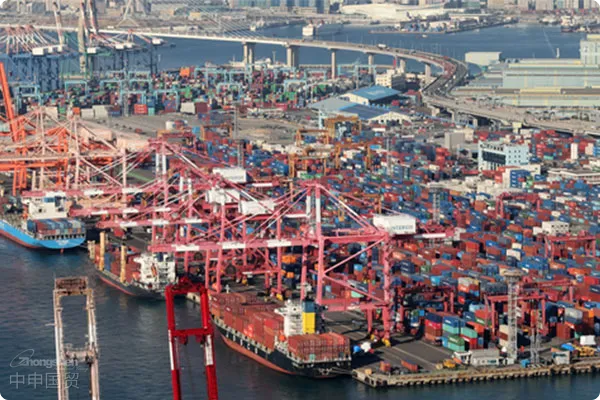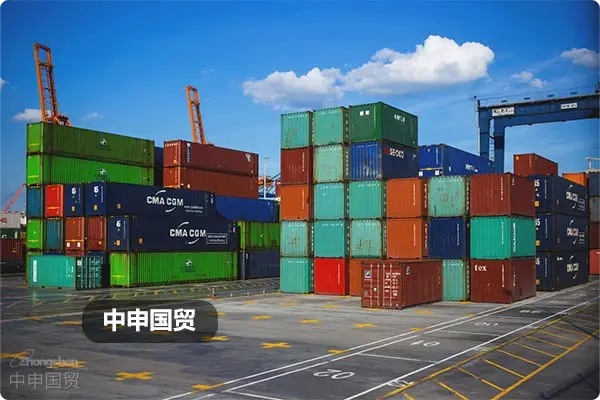- Shanghai Zhongshen International Trade Co., Ltd. - Two decades of trade agency expertise.
- Service Hotline: 139 1787 2118
The Argentine market has always been attractive to many exporters, but it also presents significant challenges. Particularly when it comes to payment terms, the requirement of payment after receipt of goods often puts manyforeign tradein a dilemma. Especially given Argentinas current economic environment—economic turbulence and severe inflation—this no sight, no payment approach undoubtedly raises concerns. So how can transactions be completed smoothly under such complex circumstances, reducing bad debt risks while meeting customer needs? Today, Ill discuss various coping strategies in detail.

I. The Unique Characteristics of the Argentine Market
As one of South Americas important economies, Argentina has always been a key player in global trade, but its economic environment remains unstable. In recent years, Argentina has faced high inflation and significant exchange rate fluctuations, making business with Argentine clients relatively high-risk. Specifically, the payment after delivery model carries extremely high risks in Argentina, and extending credit could easily lead to bad debts. Next, well discuss several effective methods to mitigate these risks in detail.
II. Payment Solutions to Reduce Risks
Advance deposit: 30% – 70%
In trade with Argentine clients,requesting an advance depositis an effective way to reduce risks. Typically, its recommended to collect at least30%as a deposit to ensure the clients payment willingness and履約能力. However, given Argentinas current economic situation, its advisable to increase the deposit ratio to50% – 70%especially for new clients. While this may lead to some client attrition, it safeguards your資金安全. After all, in times of economic turbulence, its better to secure fewer orders than to risk資金回收.
2. Letter of Credit(L/C)
If the customer hesitates about the deposit requirement but shows some sincerity, thenLetter of Credit (L/C)it is a good option. A letter of credit (L/C) is issued by a bank, ensuring the security of transaction funds. L/Cs are relatively flexible and can be either sight L/Cs or usance L/Cs.
The advantages of L/Cs include:
- Bank involvement reduces the risk of default. If the customer fails to pay, the bank will make the payment according to the L/C terms.
- Performance guarantee: Specific terms in the L/C can provide safeguards for product quality, delivery time, etc.
However, using L/Cs also comes with certain costs (such as issuance fees, confirmation fees, etc.), and these expenses need to be communicated in advance with the customer regarding which party will bear them.
Performance bond
Performance Bondis also a viable option. A performance bond is similar to a deposit, usually provided by the customer to a third-party bank as a guarantee to ensure the seller receives payment on time. For customers who are genuinely sincere but temporarily financially unstable, a performance bond can effectively reduce the sellers risk. However, this method is relatively complex and may not be suitable for all transactions, especially smaller orders.
Sinosure (export credit insurance)
For situations where L/Cs cannot be used or the customer cannot pay a high deposit, consider purchasingSinosure (China Export & Credit Insurance Corporation)for the goods. Sinosures role is to cover a certain percentage of compensation even if the customer ultimately fails to pay, thereby safeguarding funds to some extent. However, note the following:
- Sinosure has requirements for customer qualifications and will conduct credit ratings.
- Whether Sinosure approves a credit limit is crucial. If Sinosure does not approve a limit, it often indicates extremely high credit risk for the customer—such orders should be carefully reconsidered.
Other credit insurance options
If Sinosure does not approve a limit, you can also considerinsuring with other international credit insurance companies. Currently, many well-known international credit insurance companies, such as Frances Coface and Germanys Euler Hermes, offer credit insurance for export trade. These companies also decide whether to underwrite based on the buyers creditworthiness, making it another way to mitigate risk.
III. Why Shouldnt You Easily Extend Credit?
Under Argentinas current economic conditions, offering credit terms means taking on very high default risks. Many companies have experienced situations in the South American market where customers were unable to pay after goods were shipped. This payment upon arrival model often leads to overdue or unrecoverable receivables when the customers financial situation is poor and currency exchange rates are highly unstable. Especially given Argentinas current political instability and severe exchange rate fluctuations, if the customers financial condition is weak, they may simply be unable to pay upon arrival. Therefore, never offer credit terms lightly.
IV. How to Handle Clients Insisting on Payment After Delivery?
If the customer insists on payment upon arrival and is unwilling to pay a deposit, but you don’t want to lose the customer outright, you can try the following approaches:
- Small trial orders: Negotiate with the customer to split the order into multiple small batches. Ship a small quantity first and proceed with subsequent transactions only after the customer pays. Although this increases logistics costs, it is relatively safer for new customers.
- High deposit + L/C combination: Require the customer to pay a partial deposit while opening an L/C for the remaining amount. This ensures partial fund security while lowering demands on the customer, making your terms appear more flexible.
- Freight forwarder lock-in: After shipping the goods to an Argentine port, store them with a freight forwarder and release them only after the customer pays. This method prevents early pickup of goods, adding an extra layer of security.
V. Summary
Facing a volatile market like Argentina, exporters must conduct comprehensive risk assessments and preventive measures. For payment upon arrival requests, extreme caution is necessary. The optimal strategy is torecover as much payment as possible before shipment, such as throughhigh deposit percentages, L/Cs, or performance bonds. If none of these options are feasible, consider insuringExport tradeIt is the final line of defense.
While the South American market is full of potential, its risks should not be underestimated. We hope all foreign trade professionals can strike a balance between stable returns and risk control, winning market share while protecting their companys interests. Remember one principle: Rather than shipping goods with uncertainty, its better to carefully design transaction methods to ensure fund safety. After all, Not earning the last penny, but securing every penny earned is the ultimate winning strategy in international trade.
Related Recommendations
? 2025. All Rights Reserved. 滬ICP備2023007705號-2  PSB Record: Shanghai No.31011502009912
PSB Record: Shanghai No.31011502009912










